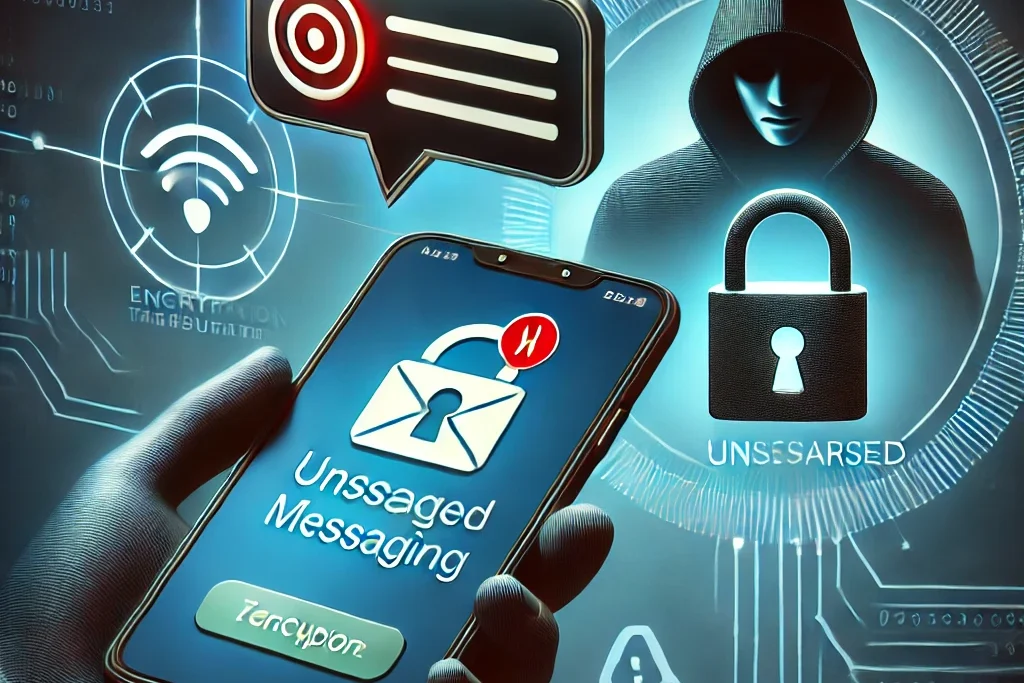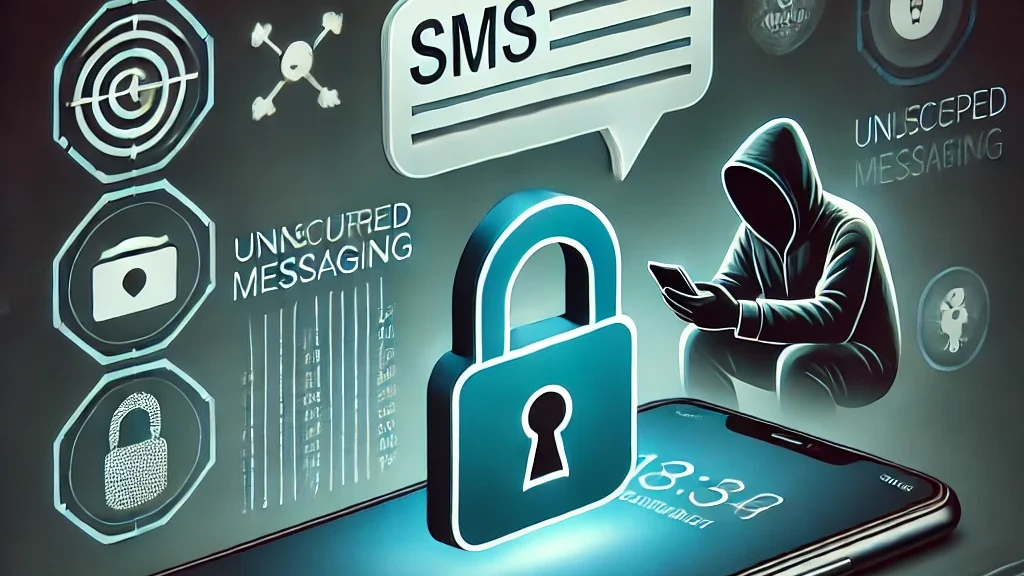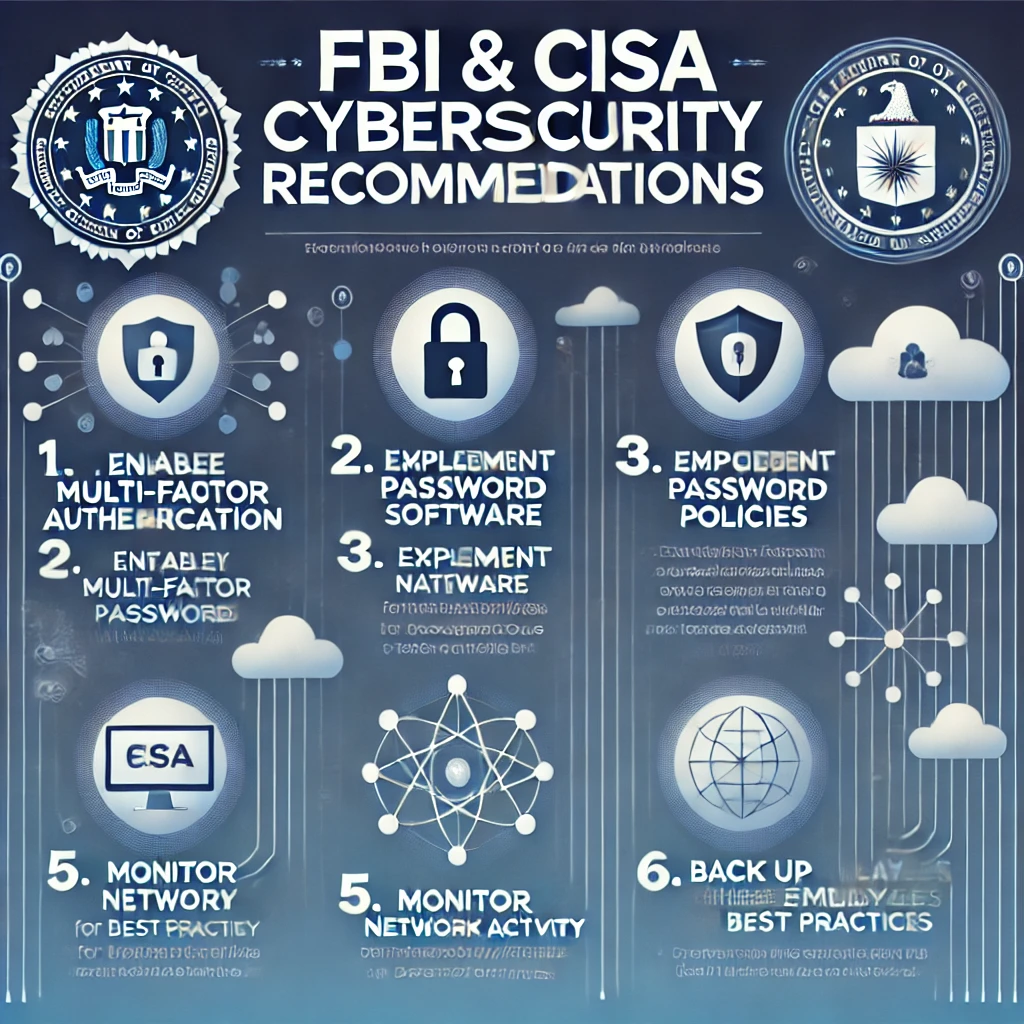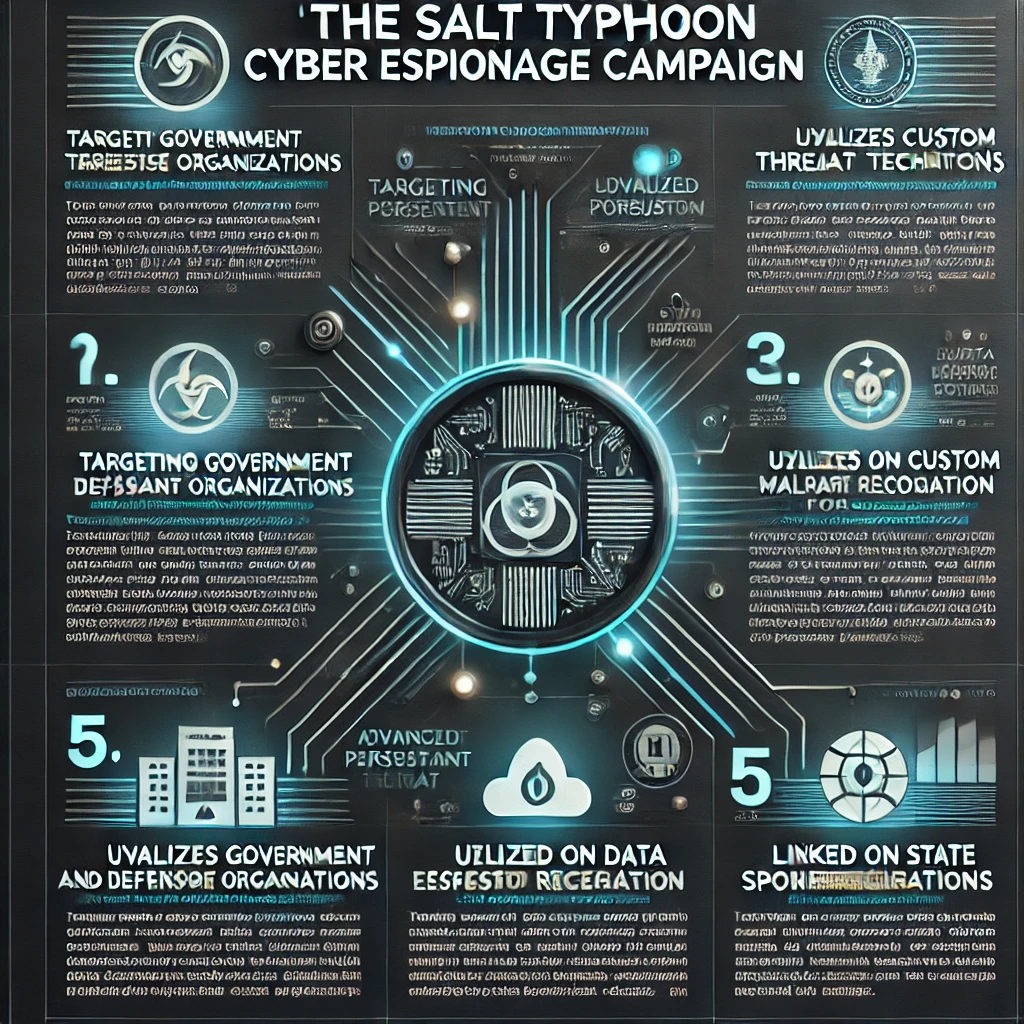Introduction
With cyber threats escalating globally, the FBI and CISA (Cybersecurity and Infrastructure Security Agency) have issued a stark warning to Americans: avoid unsecured text messaging and opt for end-to-end encrypted communication wherever possible. This comes amid revelations of a major Chinese cyber espionage campaign, dubbed Salt Typhoon, targeting U.S. telecommunications networks.

In this blog, we’ll dive into the risks of unsecured messaging, explore the implications of these cyber threats, and provide actionable tips to enhance your digital security.
Why the Warning Matters

The FBI’s recent advisory focuses on the dangers of using non-encrypted messaging systems. Particularly when communicating and Android and iPhone devices. While iMessage and Google Messages offer encryption within their ecosystems, Cross-platform messaging remains vulnerable. The risks are heightened by ongoing cyberattacks targeting critical U.S. infrastructure.
A senior FBI official described Salt Typhoon as a “broad and significant cyber espionage campaign” attributed to Chinese state-sponsored hackers. This group reportedly infiltrated U.S. telecom networks, compromising metadata and, in some cases, private communications of individuals in government or political roles.
Key Risks of Unsecured Messaging

- Lack of Encryption: SMS and basic RCS messaging are not end-to-end encrypted, making them susceptible to interception.
- Data Breaches: Cyberattacks like Salt Typhoon can expose sensitive information stored in telecommunications systems.
- Metadata Exposure Even if message content isn’t accessed, metadata (such as timestamps and sender/receiver information) can be exploited for surveillance.
- Malicious Exploits: Hackers can use intercepted communications to gain deeper access to personal and corporate data.
What Experts Are Saying
FBI and CISA Recommendations

The FBI advises Americans to use smartphones that receive regular software updates, employ phishing-resistant multi-factor authentication (MFA), and rely on responsibly encrypted messaging platforms. CISA’s Jeff Greene echoed these sentiments, urging users to prioritize encrypted communication tools like Signal, WhatsApp, or fully encrypted calls.
Jake Moore, ESET Security Specialist
Jake Moore points out the vulnerabilities of SS7 (Signaling System No. 7), a protocol that enables surveillance of SMS communications. “SMS messages are not encrypted,” Moore cautions, “and any non-encrypted forms of communication should not be used for sensitive data.”
Encrypted Messaging: The Best Defense
Why Encryption Matters
End-to-end encryption ensures that only the sender and recipient can access the message’s content. Even service providers, such as Apple or Meta, cannot decrypt these messages.
Best Encrypted Messaging Apps
- Signal: Offers robust encryption for messaging, voice, and video calls.
- WhatsApp: Widely used and supports end-to-end encryption across all platforms.
- iMessage: Secure within Apple’s ecosystem but not for cross-platform communication.
- Facebook Messenger: Recently added encryption as a standard feature.
The Salt Typhoon Cyber Espionage Campaign

Salt Typhoon represents one of the largest cyberattacks in recent history, targeting telecom companies to steal call metadata and, in limited cases, the content of communications. U.S. senators have expressed growing concerns, prompting investigations and legislative hearings on securing critical infrastructure.
Key Details of the Attack
- Targeted multiple U.S. telecom companies.
- Compromised metadata and private communications of individuals in sensitive roles.
- Highlighted the vulnerabilities in cross-platform messaging systems.
How to Protect Yourself from Cyber Threats
- Use Encrypted Communication Tools: Opt for apps like Signal or WhatsApp for secure messaging and calls.
- Avoid Cross-Platform Messaging: Stick to iMessage for Apple users and Google Messages for Android users until encryption becomes standard across platforms.
- Enable Automatic Updates: Keep your phone’s operating system and apps up to date to patch vulnerabilities.
- Use Phishing-Resistant MFA: Protect accounts with strong, secure authentication methods.
- Be Cautious with Metadata: Even if content is encrypted, avoid sharing sensitive information over unsecured channels.
The Global Debate on Encryption
While encryption is vital for privacy, governments often argue for “responsible encryption” that allows lawful access in criminal investigations. However, privacy advocates warn that creating backdoors undermines security and opens the door for abuse.
In the U.S., the debate has resurfaced following Salt Typhoon. Meanwhile, Europe is considering policies like chat control, which could push tech companies to monitor communications for specific content.
Conclusion: Why You Should Act Now
The FBI and CISA’s warnings underscore the urgency of securing your digital communication. With sophisticated cyber threats on the rise, relying on unsecured text messaging is a risk you can’t afford to take.
Switching to encrypted platforms is a simple yet effective step toward safeguarding your privacy. Apps like Signal and WhatsApp provide comprehensive security for messaging, voice, and video calls, making them the best choices in today’s threat landscape.
As cyberattacks like Salt Typhoon demonstrate, the stakes are higher than ever. Take action today to protect your personal information and ensure your communications remain private.
- How to make Chinese Chicken Dumpling: A Delicious Homemade Recipe

- Exclusive: How to US Trade Impact on Economy in 2025: Need To Know a Comprehensive Analysis

- Remarkable Legal Victory: What Happened as UK Home Office Pays Nearly £100,000 for Human Rights Breach Need to Know

- Exclusive: UK Economy Faces Higher Inflation and Slower Growth, You Need to Know Bank of England Predicts

- Exclusive: Record Amount of Sea-Effect Snow Piled High in Hokkaido, Japan, and More Is on the Way

- Breakthrough the Eye-Opening Israel-Palestine Conflict: A Comprehensive Overview

- Exclusive: Year 2024 U.S. Presidential Elections Candidates, Key Issues & Predictions

- Exclusive: New Series of Vivo X200 Pro Mini in Pakistan

- Exclusive: New Vivo X200 Pro Launched In Pakistan with 200MP

- How to Make Government Hajj Scheme 2025: Complete Guide for Pakistani Pilgrims Had Enough Money? – Apply Now

- Reasons How To Make Artificial Intelligence (AI) Tools Are Revolutionzing Technology In 2025: A Complete Guide

- Off-Limits ‘Measles and Exercise Benefits for Men’: Seen The Best and Complete Guide with Diet Plan
